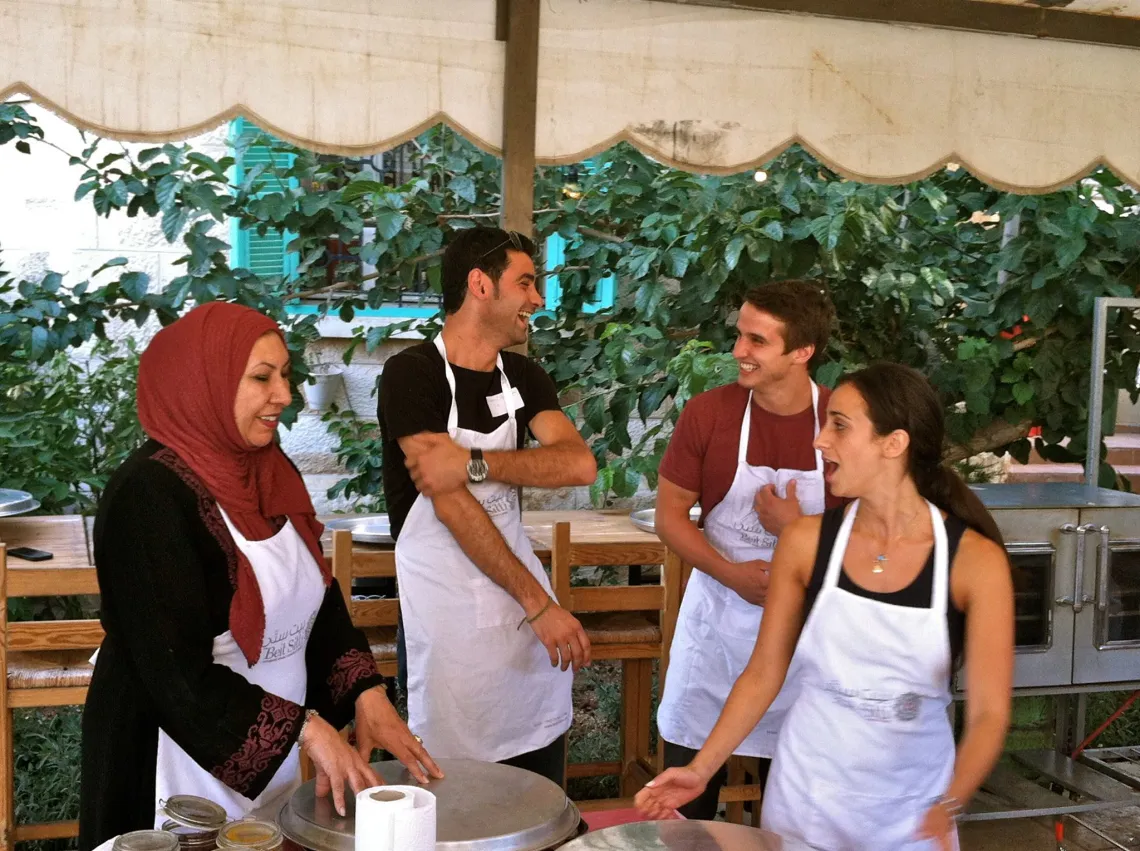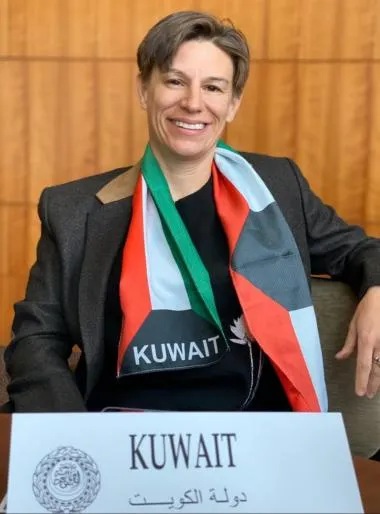Building Intercultural Connections
Jorj and Caryn Nofal help MENAS promote cross-cultural understanding.

In the School of Middle Eastern and North African Studies, or MENAS, students learn about the history, culture, and languages of the Middle East and North Africa. Increased cultural understanding doesn’t just take place through instruction and research, however. It takes place when students from different countries and backgrounds interact and discuss issues.
“Our diverse students and alumni come to Tucson from all regions of the United States as well as the Middle East, Europe, Africa, and Latin America,” said Benjamin Fortna, director of MENAS.
“I find that many of the students learn from one another, both culturally and linguistically and in terms of background,” said Maha Nassar, associate professor in MENAS.
For Jorj Nofal (B.S. ‘81, M.S. ‘83, Mechanical Engineering), this type of learning is what he encountered when he came to the University of Arizona and met students from all over the world. “It was a fantastic experience to be able to sit down and talk with people from other cultures. And as we talked about religion and politics and other issues, things slowly changed within me, and within them.”
That value of finding common ground across cultural differences is one shared by his wife, Caryn (B.S., Psychology, ‘83; MBA, ‘86, Northern Arizona University). “There’s so much to be learned from people of different cultures, and I think we all have a lot more in common than what we don’t have in common,” Caryn said.

Jorj and Caryn Nofal established the Nofal Family Foundation Fellowship to assist graduate students in the school – to allow them to explore subjects they’re passionate about and to have the types of intercultural experiences that help form a global community.
The goal of creating intercultural connections is built into the very fabric of MENAS. The prestige of the school – from being one of only six Arabic Flagship programs, to teaching the highest number of first-year Turkish students, to offering one of the country’s strongest Persian programs – provides students at every level with opportunities for enrichment. The school hosts numerous cultural and academic events and offers a variety of study abroad programs.
The Nofal Fellowship recipients are grateful to be able to take advantage of more of these opportunities. Kelly Loomis joined several Arabic clubs on campus, including the Model Arab League. Scott Jones says the Nofal Fellowship allowed him to present his work at a graduate student workshop at the University of California, Berkeley.
“The fellowship helped me have more time to participate in extracurricular and departmental events and activities, and thus I could get to know the faculty and fellow students and build relationships with them,” Scott said.
The impact of such experiences can change the landscape of intercultural relations for generations. Graduates go on to positions in academia, government, NGOs, journalism, military, and business.
“Diversity is key to understanding this world,” Jorj said. “It would be great if we could help foster the leadership to bring people together in understanding and respect.”
##
This story is part of the 2020 SBS Developments magazine.

